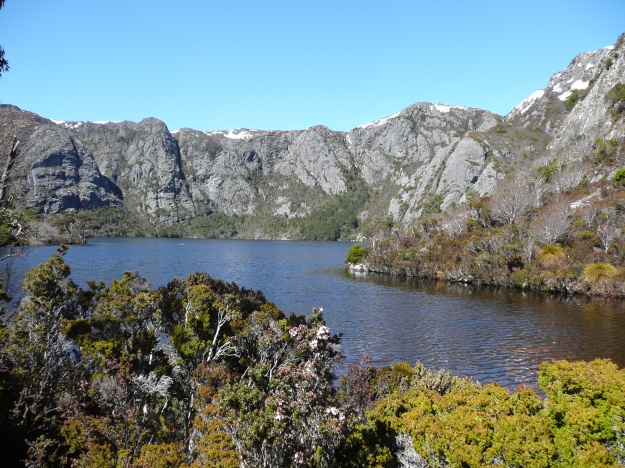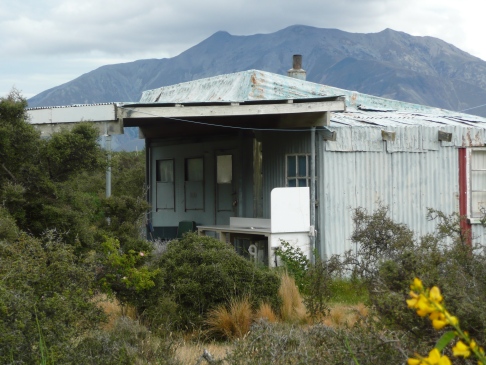
Wildlife


Wildlife

Cradle Mountain

Button Grass, Cradle Mountain, Tasmania
Cradle Mountain, a mountain of 1500 metres is in the Cradle Mountain – Lake St Clair National Park in Tasmania is in Tasmania’s north, about two hours drive from Launceston. It’s where Cara goes to recuperate after George’s death in the Southern Ocean. Cliff has bought her a bike and she decides to go and look for wildlife in the button grass, the long grass you see in one of the photographs. Wombats go mad for it and at dawn and dusk you can see them and the little rufus wallabies out there happily grazing.
There’s only one road in and out of Cradle Mountain and the road twists and turns. It’s the perfect place for a chase sequence. And here on this lonely road Cara decides to venture out on the bike. What she doesn’t know is that she’s been spotted…. And nobody else knows that she’s out there alone on that road. If she did miss a corner or have a close encounter with another vehicle there wouldn’t be any witnesses….

The Coromandel Peninsula, about two and half hours from Auckland is a mixture of rugged forested hills and coast. It’s a magic place and a place of escape for city dwellers to spend the summer. It’s where Cara goes to when she flees to New Zealand and falls in with the group of eco-terrorists. The humble holiday cottage, called a ‘bach’ (pronounced batch) in New Zealand may soon become consigned to history – as many are being torn down and replaced by smart modern houses. I thought I’d post this so that you can see what a Kiwi bach looks like and I imagined it as the house where the eco-terrorists hang out. 
Run by Harper Collins, Authonomy is a cross between a publisher’s slush pile and a writing critique site, but one with a competitive edge. You post a minimum of 10,000 words of your book and then try to attract the attention of other reviewers. You can do this in a number of ways – you can start interesting or controversial discussion threads or if you just want to stick to discussions about writing you can read and review as many other books on the site as you can fit in.
You can post a work-in-progress if you are brave and want to get feedback on the ways to improve it – or you can post what you regard as a finished piece of work. After receiving a few reviews from fellow Authonomites, you might realise that you still have some editing left to do. And there is no shame in editing – in fact, if there is one thing that distinguishes a writer who aspires to be professional about their work and an enthusiastic amateur, it is that the former will take constructive critique on the chin whereas the latter may take it personally. Not everyone is going to like your book – just like in real life, but this is something we have to learn to get over if we aspire to have our work taken seriously.
If enough fellow authors put your book on a virtual shelf, you will win a free review from a Harper Collins editor. It’s not like a paid critique, where the editor reads the entire book (how much of the book the HC editor reads is not generally disclosed). How much of the book the editor reads depends on how much of the book that you post on Authonomy.
When I first joined the site I became rapidly addicted and worked really hard to get into the top 150. However, I soon realised that I was spending far too much time on the site and far too little on editing the book.
Even though Revolution Earth is published, I’m still an active member of Authonomy. It’s the kind of community, like most in life, where you only get out of it what you put in. As well as first-time authors you will stumble across experienced, published writers who will give your work a thorough critique – if that is what you want. I joined a couple of critique threads and this is where I hang out mostly, now.
Authonomy is a place where you’ll find writing advice, as well as glean marketing tips from your fellow authors who have already published. And they’re an inspiring group of writers who really helped us get our work out there. If real life gets in the way of your writing, as it does, sometimes, you can commiserate with friends who understand what that feels like when you’re feeling down, as well as share your writing successes – and have a few laughs along the way. So why not check it out for yourself?
For the next week Revolution Earth is in the spotlight on the Harper Collins’ Authonomy critiquing group we belong to. This is a group of very able writers, some of whom are already published, who willingly put the time and effort to comment on your work. We’ve received feedback and comments some of which we’ve already incorporated into the re-write, some of which we may not be able to change before the book is published but which we’ll remember for the next book in the series.
If your aim is to write for an international readership – this on-line writers’ group, where you get to choose when and how often you participate is simply the best way we’ve found to get feedback.
Written in the first person, On Canaan’s Side tells the story of Lilly Bere, the 89 year old narrator and protagonist who has had to live her life in exile and under the radar in the US.
Lilly’s story brings to life one of the most turbulent times in Irish history, when political divisions meant that many caught up in the conflict after the first world war, were either forced into exile or killed. Lilly’s story has some parallels with that of my own Irish grandmother’s, who, luckily for her, left Ireland not long after the end of the first war, and before the bloodshed and deep political divisions, prior to the creation of the Irish Free State, forced some, like Lilly, to flee in fear of their lives.
Lilly’s crime was to fall in love with Tadg Bere, who on returning from the First World War, chose to work as an auxiliary police officer for the oppressors, the hated Black and Tans. When Tadg’s name appears on a hit-list he and Lily run from Dublin to America and head for Chicago. Perhaps, with hindsight they should have chosen to go west, rather than east, and certainly not to a city already full of immigrants from Ireland and supporters for the other side of the political divide.
Rather than add in some plot spoilers at this juncture, suffice to say that Lilly is a survivor and despite the seemingly endless dreadful blows that life deals her, she not only endures but, even manages to enjoy her life with quiet stoicism. Lilly takes pride in her work as a cook and is admired and appreciated by her employer.
Sebastian Barry writes haunting, poetic and achingly beautiful prose. His characterisation of an elderly Irish woman is utterly convincing. When I finished the book I felt bereft. As I have come late to Barry’s work and now know that these characters appear in not just an earlier novel but in his earlier plays, I can’t wait to reconnect with them.
It has now been just over a month since we published Revolution Earth and I would say that we are now no longer selling just to colleagues, family, friends, and well-wishers, but have crossed that line where the reading public are now buying our book. And that is a great feeling.
In the six years since we dreamt up this book there has been a revolution in indie publishing. We would never have dreamt of going the DIY route had it not been for those indie pioneers who paved the way – and then of course landed publishing deals, after they proved to the agents and the major publishing houses that they could sell books as well as write them.
One of the criticisms of indie published work is that there is still too much self-published work out there that hasn’t been edited properly. We have recently joined The Alliance of Independent Authors, an organisation that is going to give indie authors access to services such as copy editing, editing and proofreading. Many indie authors say that they can’t afford to hire an editor but the question now should be, can you afford not to?